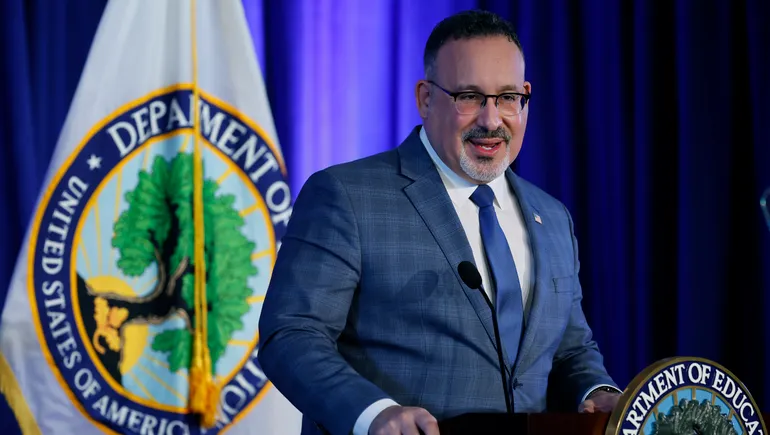Dive Brief:
- A Texas executive order directing colleges to update their free speech policies to address rising antisemitism is seeing growing pushback from free expression and academic groups, who say its language is an example of governmental overreach.
- Gov. Greg Abbott, a Republican, said the order is meant to keep campuses as safe spaces for Jewish people and to fight against an increasing number of antisemitic acts at colleges in the wake of the Israel-Hamas war.
- But opponents, including the Texas conference of the American Association of University Professors, have decried the order, arguing it uses overly broad language that could chill free speech and singles out certain student groups.
Dive Insight:
In March, Abbott signed an executive order requiring Texas colleges to create “appropriate punishments” for antisemitic rhetoric, including expulsion.
“The State of Texas stands with Israel and the Jewish community, and we must escalate our efforts to protect against antisemitism at Texas colleges and universities and across our state,” Abbott said in a statement at the time.
The order also directed Texas colleges to adopt the definition of antisemitism used by the International Holocaust Remembrance Alliance.
The group’s definition says that criticism of Israel “similar to that leveled against any other country” does not rise to antisemitism. But the American Civil Liberties Union and other groups have pushed back on examples the IHRA gives of antisemitic acts, saying they include protected speech critical of Israel and its policies.
On Saturday, the AAUP of Texas criticized Abbott’s order for its use of “a controversial definition of antisemitism that condemns criticism of the State of Israel as antisemitic.”
“This definition of antisemitism is certainly too expansive a definition to apply to students and faculty at institutions of higher learning that have a duty to lead probing, unfettered conversations and debates on the important issues of the day,” the organization said in a statement.
Other free speech and academic freedom groups have levied similar criticisms since Abbott signed the order.
In March, the Council on American-Islamic Relations’ Texas chapter called on Abbott to rescind the order, describing it as “a direct affront to the principles of free speech and academic freedom.”
“It is crucial to recognize that advocating for Palestinian rights and criticizing the actions of the Israeli government are not inherently antisemitic,” Mustafaa Carroll, interim executive director of CAIR Texas, said in a statement. “Students must be allowed to express their opinions and engage in robust debates on complex geopolitical issues without fear of reprisal or censorship.”
The Middle East Studies Association’s academic freedom committee likewise said Abbott should revoke his order earlier this month, saying it constitutes “a grave threat to free speech and academic freedom.”
“It is based on an unacceptable and dangerous conflation of advocacy for Palestinian rights, and criticism of Israel and the war it is currently waging in Gaza, on the one hand, with antisemitism on the other,” the group said in an open letter.
The Foundation for Individual Rights in Expression, a free expression watchdog, said antisemitism on college campuses is a significant problem but argued that the governor’s order “relies on a definition of anti-Semitism that reaches core political speech.”
Federal law mandates that colleges address antisemitic harassment, the group pointed out. But the U.S. Constitution also requires them to adhere to the First Amendment.
“For the sake of our country, they can and must do both,” FIRE said.
FIRE, along with the AAUP of Texas and MESA, also criticized the order for singling out two student groups — the Palestine Solidarity Committee and Students for Justice in Palestine.
By naming them in the order, Abbott suggests that “these groups should draw official scrutiny on account of their views,” FIRE said.
In a joint statement, SJP’s University of Texas at Dallas chapter and the Texas A&M University chapter of the Palestine Solidarity Committee said Abbott’s order misrepresented peaceful protests.
“The Governor has leveraged the highest level of state action to suppress our activism,” they said on social media.
#Criticism #mounts #Texas #Gov #Abbotts #executive #order #campus #antisemitism








